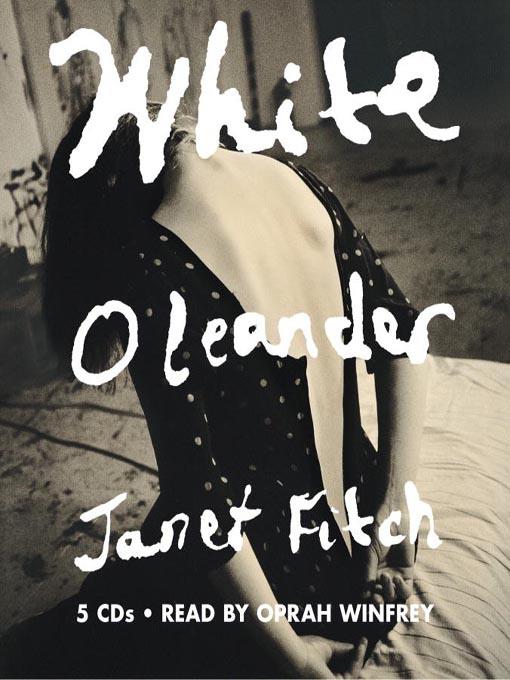
White Oleander
کتاب های مرتبط
- اطلاعات
- نقد و بررسی
- دیدگاه کاربران
نقد و بررسی

Endorsed by reader Oprah Winfrey as an "Oprah's Book Club" selection, WHITE OLEANDER is the intimate story of a mother and daughter who are bound together by the power of their passionate and creative spirits. Oprah Winfrey does not let listeners down with her performance, bringing to life mother Ingrid, a poet and endless seducer of men, and her daughter, Astrid, who loves her mother so deeply that she kills the man who left them both. Winfrey is known for her demand for quality in the books she supports, and that is no less true for this audio presentation. Indeed, it is her own talent that raises the production level from its already remarkable intensity. R.A.P. (c) AudioFile, Portland, Maine

Starred review from March 29, 1999
Thirteen-year-old Astrid Magnussen, the sensitive and heart-wrenching narrator of this impressive debut, is burdened with an impossible mother in Ingrid, a beautiful, gifted poet whose scattered life is governed by an enormous ego. When Ingrid goes to prison for murdering her ex-lover, Astrid enters the Los Angeles foster care program and is placed with a series of brilliantly characterized families. Astrid's first home is with Starr, a born-again former druggie, whose boyfriend, middle-aged Ray, encourages Astrid to paint (Astrid's absent father is an artist) and soon becomes her first lover, but who disappears when Starr's jealousy becomes violent. Astrid finds herself next at the mercy of a new, tyrannical foster mom, Marvel Turlock, who grows wrathful at the girl's envy of a sympathetic next-door prostitute's luxurious life. "Never hope to find people who will understand you," Ingrid archly advises as her daughter's Dickensian descent continues in the household of sadistic Amelia Ramos, where Astrid is reduced to pilfering food from garbage cans. Then she's off to the dream home of childless yuppies Claire and Ron Richards, who shower her with gifts, art lessons and the warmth she's been craving. But this new development piques Ingrid's jealousy, and Astrid, now 17 and a high school senior, falls into the clutches of the entrepreneurial Rena Grushenka. Amid Rena's flea-market wares, Astrid learns to fabricate junk art and blossoms as a sculptor. Meanwhile, Ingrid, poet-in-prison, becomes a feminist icon who now has a chance at freedom--if Astrid will agree to testify untruthfully at the trial. Astrid's difficult choice yields unexpected truths about her hidden past, and propels her already epic story forward, with genuinely surprising and wrenching twists. Fitch is a splendid stylist; her prose is graceful and witty; the dialogue, especially Astrid's distinctive utterances and loopy adages, has a seductive pull. This sensitive exploration of the mother-daughter terrain (sure to be compared to Mona Simpson's Anywhere but Here) offers a convincing look at what Adrienne Rich has called "this womanly splitting of self," in a poignant, virtuosic, utterly captivating narrative. Reading group guide; author tour. (Apr.) FYI: An excerpt from the novel was selected as a notable story in Best American Short Stories 1994.

April 15, 1999
This novel will surely be hailed as one of the best novels of the year and is likely the best debut this reviewer has ever read. When beautiful, egotistical poet Ingrid murders the lover who dumped her, 12-year-old daughter Astrid descends into the hells of foster care, where she is sustained only by a fierce intelligence and great artistic talent. Shot and left for dead by her first mother, half-starved in a mansion by another, turned into a drudge by a racist, she nearly finds happiness and mutual love with Ron and Claire; but then Claire kills herself. Shopping with them, Ingrid wonders who would want a black (Christmas) tree, but I knew someone woulda belated Halloween, to decorate with plastic skullsor just for the pleasure of making their kids cry. Heartbreaking, but without a trace of sentimentality, this novel provokes amazement that children like Astrid can emerge whole and capable after what we know are even worse childhoods than hers.Judith Kicinski, Sarah Lawrence Coll. Lib., Bronxville, NY

























دیدگاه کاربران